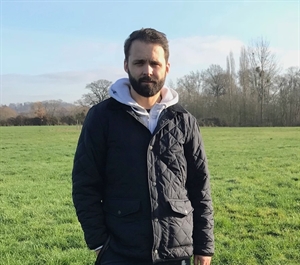 What course did you study?
What course did you study?
MBBS 4-year Graduate Medicine following a degree in music performance
What is your current role?
London Neurosurgical trainee (run-through)
How did you get into your current role?
I knew early on at medical school that I enjoyed neuroscience and neuroanatomy. When I started clinical placements, I really enjoyed surgery and therefore knew pretty early that neurosurgery was the career path for me. I tried to gain as much experience as I could while at medical school, which is particularly easy at St George’s as you are within a major London hospital on a daily basis and can visit various departments. I worked on building my CV from third year focusing on how I wanted it to look when applying for specialty training after foundation years. I progressed through foundation years as usual, took a year out to work in trauma and orthopaedics, then applied via national selection for the neurosurgical training program.
Can you describe a typical day?
We start each day with the morning meeting where we take handover of acute admission from the previous day. This meeting is typically used as a teaching opportunity for juniors.
Then ward rounds need to be completed at the start of the day to set the jobs for juniors and give plans to the nursing teams before attending either an operating list or a clinic for the rest of the day. Unless on-call, in which case, you take referrals from hospitals throughout the region as the regional neurosurgical centre. You may also be on for a night shift, hopefully you get sleep during the day if this is the case.
What do you enjoy about your role?
I love the acuteness of neurosurgery mixed with some very complex cases. The decision making keeps the day-to-day job very interesting. No case is the same and as neurosurgical pathologies can be quite rare, management options are not often based on firm evidence. Therefore, cases are often discussed with colleagues in order to form a consensus opinion, like an ad-hoc Multi-disciplinary team (MDT).
Clearly, the main appeal to a surgical specialty is operating. There are a range of pathologies from brain tumours, to spinal trauma and vascular problems. Patients range from new-born babies (sometimes before they’re born) through the full age spectrum up to elderly people. Operations can take 20mins in some emergency scenarios, or up to 24 hours plus in more complex vascular or tumour cases. The use of technology and advances in image guidance are also really exciting.
There are lots of opportunities for research, including PhD programs or general departmental projects. Neuroscience is a dynamic academic field, and within my career I expect there to be huge developments in knowledge and practice. It is exciting to be a part of that.
What do you find challenging in your current role?
The challenges tend to be part of the appeal. Neurosurgical emergencies often have potentially dire outcomes, which makes decision making and decisiveness key. Breaking bad news and handling relatives’ expectations is a challenge, but one that neurosurgeons anticipate. It is a long training pathway, often lengthened by time in research, and can be tiring; but it is well worth it.
What advice would you give to a current student at St George’s who is keen to get into a similar area of work as you?
Only choose neurosurgery if you can’t see yourself doing anything else. Surgery is an all-consuming specialty, which is competitive to get into and demanding to survive training. It is difficult to juggle family and personal life, but not impossible. It is worth noting that some surgical specialties have a much better work-life balance compared to neurosurgery (my partner often says she wished I’d done orthopaedics).
Which aspects of your degree are relevant for your current role?
All aspects, from the anatomy you learn in the first few years, to the clinical aspects in later years. Communication skills are particularly important - as is breaking bad news.
Do you have any advice or a message for current students at St George’s?
Unfortunately, if you want to do a competitive specialty you need to commit early in your career. Try to build your CV at medical school, as you have a lot more time than once you start working. Publications, presentations, audits, teaching, conferences etc… Equally important, though, is to enjoy your time at medical school and join as many clubs and sports teams as you can. This also tends to help with your CV, as selectors like well-rounded people. The key is to balance your time between enjoying life, doing well at medical school and building your CV.
Do you have any advice or a message for students considering studying at St George’s?
It’s a great university with lots of clinical exposure and diversity. Being in a university that only does medical sciences and is situated within a major London hospital is a great environment to learn and develop.